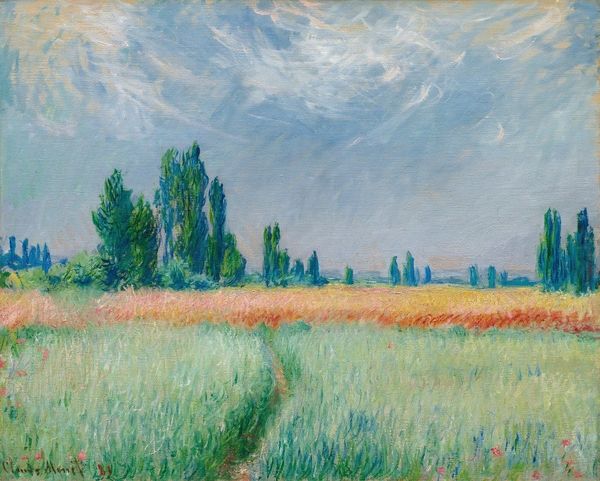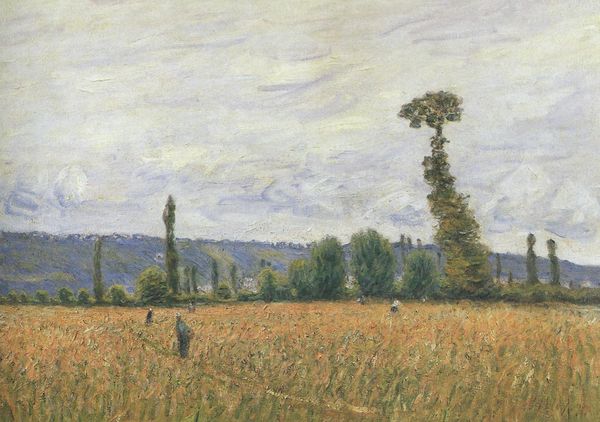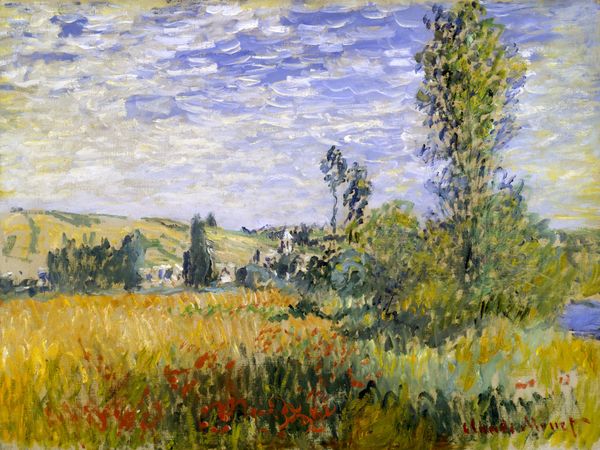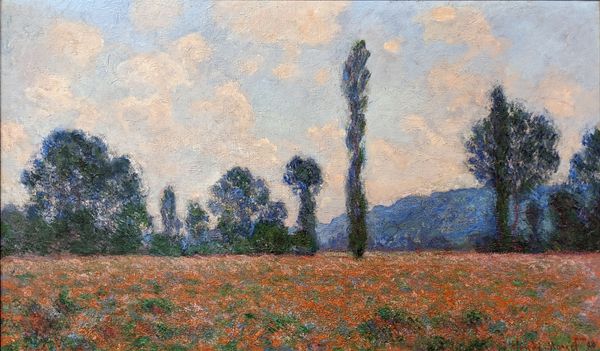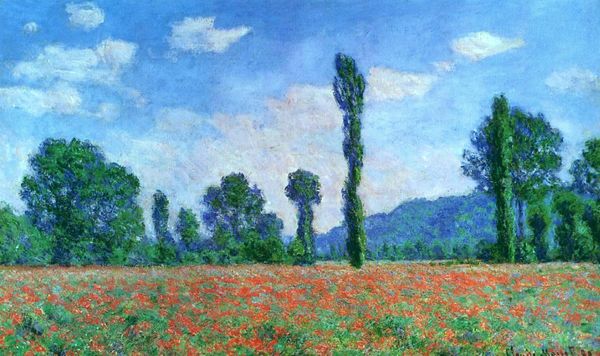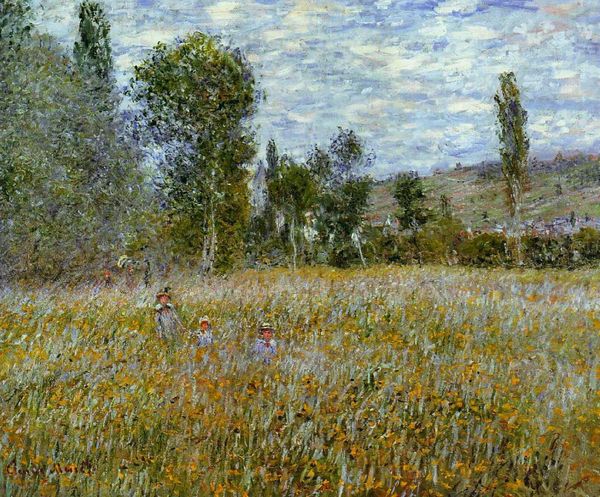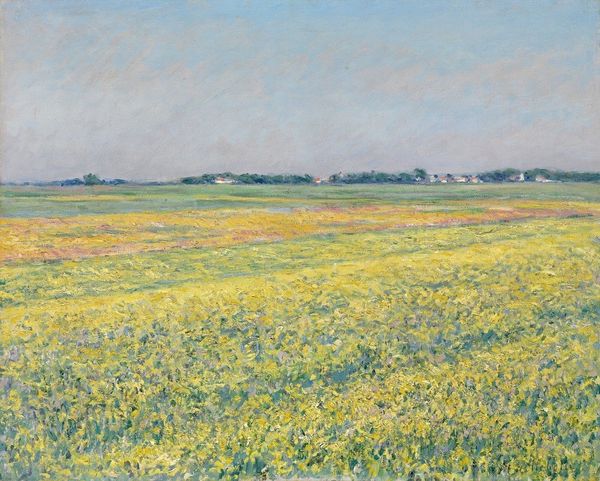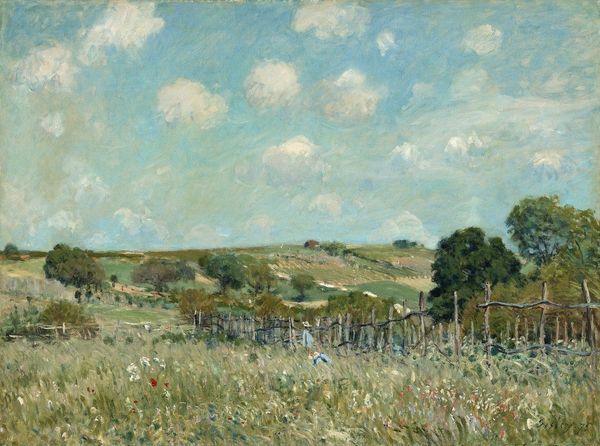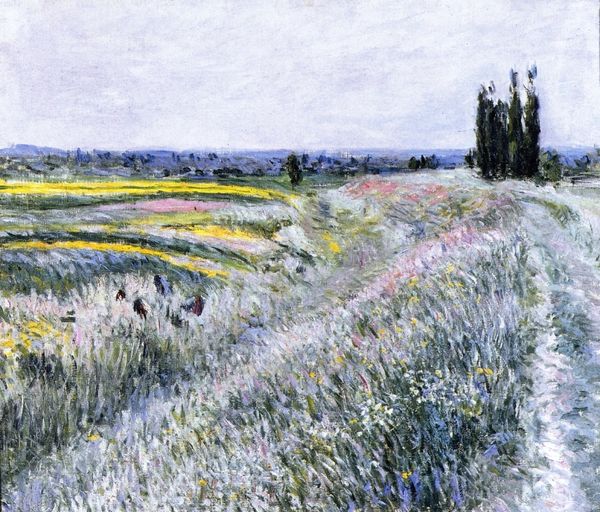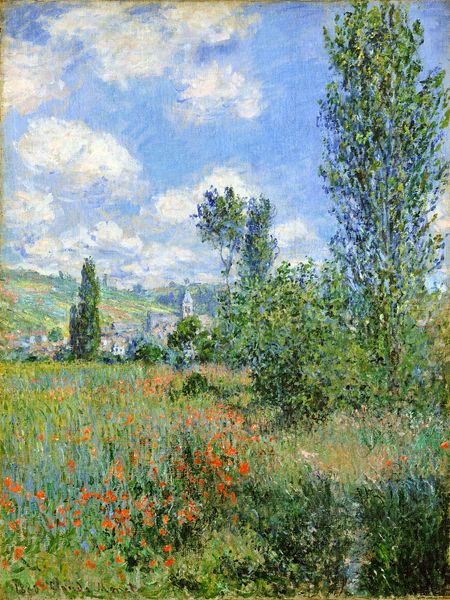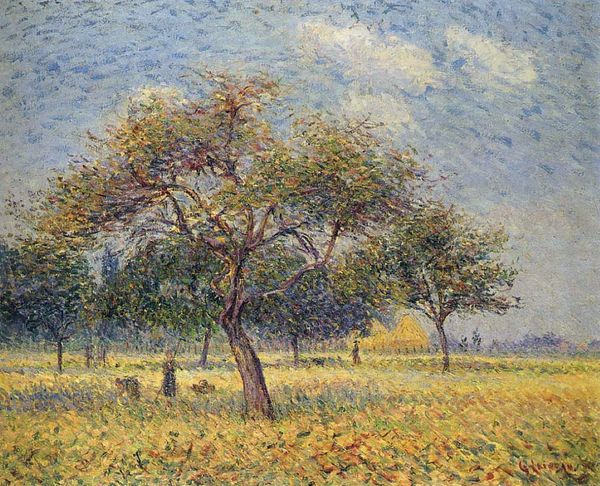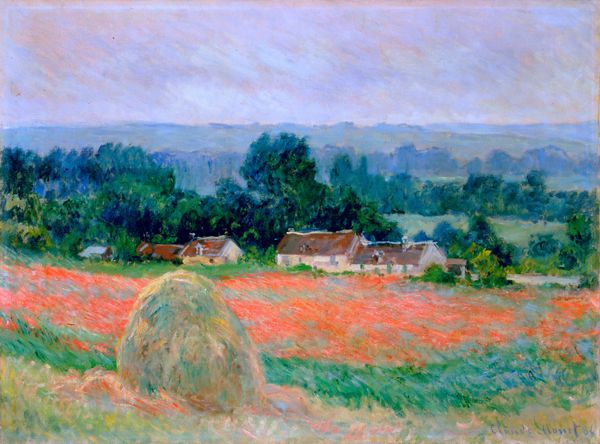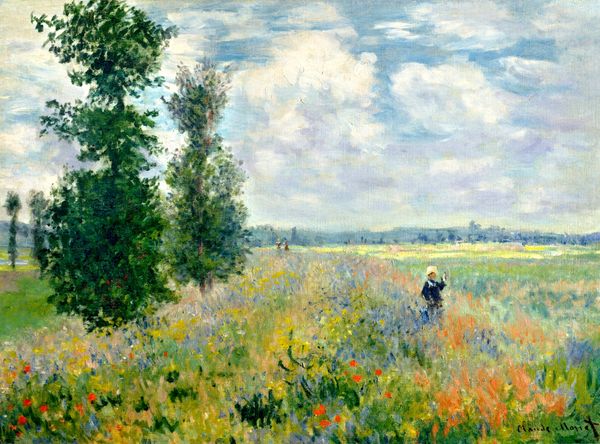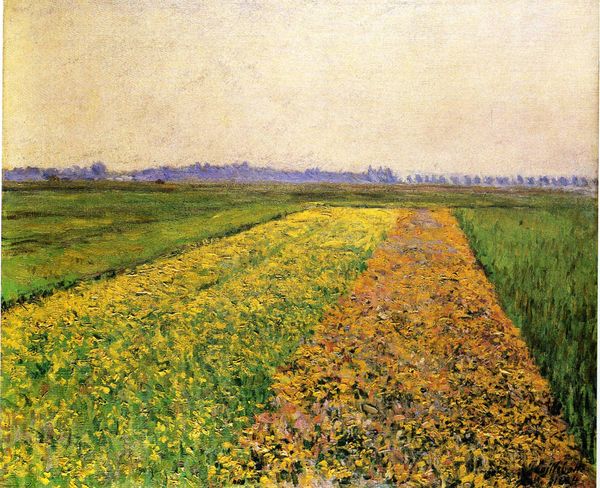
#
tropical
#
abstract painting
#
landscape
#
impressionist landscape
#
possibly oil pastel
#
nature
#
oil painting
#
acrylic on canvas
#
naturalistic tone
#
seascape
#
watercolor
Copyright: Public Domain: Artvee
Editor: This is "Poppy Field 2", often attributed to Claude Monet, though the exact date and current location seem uncertain. The piece, potentially rendered in oil pastel, acrylic on canvas, or watercolor, depicts a landscape awash in reds and greens. I’m struck by the vastness and freedom it evokes; it feels both tranquil and full of energy. What do you see in this piece, especially considering the context of its creation? Curator: "Poppy Field 2", regardless of the ambiguity surrounding its details, reflects Monet's interest in capturing fleeting moments, an ideology at odds with the strictures of the Parisian Salons of his time. We see here a painting moving away from the idealized landscapes sanctioned by the academic establishment. The looseness, the focus on color rather than meticulous form, was, in its time, quite radical. Do you see any indicators of a democratizing shift in how painting was being considered as a form of art production? Editor: Absolutely. The accessible subject matter – a field, not some historical or mythological scene – and the seemingly spontaneous brushwork, signal a move towards representing the everyday. It's a stark contrast to the polished, narrative-driven works favored by institutions like the Academy des Beaux-Arts, no? Curator: Precisely. And the use of vibrant colors challenges the traditionally muted tones of academic painting. These artistic choices had significant implications, not just aesthetically but politically. By choosing these subjects, the impressionists were moving art to an increasingly urban audience with radically diverse views and income levels, as opposed to being predominantly appreciated by the landed gentry and those associated with the traditional institutions of art production. That expansion inevitably impacted the established structures of patronage and artistic recognition. Editor: I hadn’t thought about it in quite those terms. It’s fascinating to consider the broader social impact of these seemingly simple artistic choices. Curator: Indeed. Reflecting on this landscape we have new tools for exploring how shifts in art mirror wider changes in society and its evolving attitudes towards how it values its visual landscape.
Comments
No comments
Be the first to comment and join the conversation on the ultimate creative platform.
